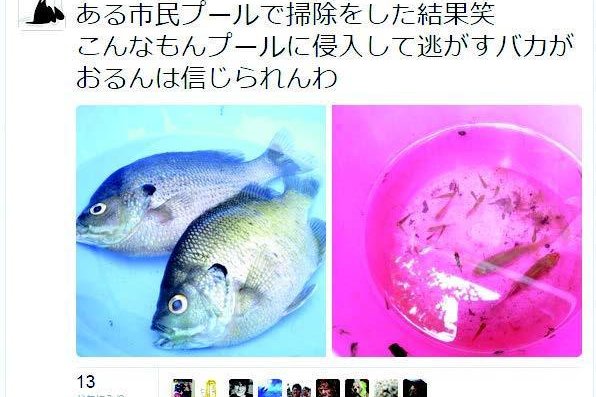Twitter photos were used to confirm the first violation of a prohibition against the release alien fish. Photo by ZooKeys
YOKOHAMA, Japan, Feb. 29 (UPI) -- For the first time in ten years, scientists have confirmed the illegal release of an alien fish in Japanese waters.
Ten years ago, due to the threats invasive fish pose to local fish species and aquatic insects, officials passed a strict prohibition against the release of alien fish.
Violations by an individual are punishable by a fine of more than $26,000, while violations by corporations warrant a fine of $88,000.
Until now, there had been no confirmed violations of the prohibition. But last year, scientists noticed a Tweet published by Akinori Teramura, an undergraduate student at the Tokyo University of Marine Science and Technology.
In June 2015, Teramura used his Twitter account to share photos of invasive bluegill fish, including adults and juveniles, in an outdoor public pool in the city of Yokohama, Japan. Because the pool was cut off from natural water during a scheduled pool cleaning, the alien fish could have only entered the pool relatively recently -- transported and released by humans.
Researchers with the Kanagawa Prefectural Museum of Natural History analyzed Teramura's observations and the ecological implications in a new paper for the open-source journal ZooKeys.
"Our report demonstrates an example of web data mining in the discipline of citizen science," the study's authors wrote. "Web data mining has been rapidly developing over recent years, and its potential continues to expand."
"Community awareness of this issue needs to be improved, and widespread reporting of cases such as this one will help," researchers concluded.















